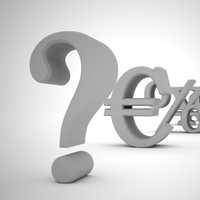| Home | About | Archives | RSS Feed |

The Independent Investor: The European Central Bank Delivers
 |
Thursday, Mario Draghi, the head of Europe's Central Bank, announced new steps in an effort to lift the EU from economic malaise. Investors wonder if it will be enough.
That's not unusual. There were many doubting Thomases in this country when the Fed first launched its quantitative easing program back in 2009. Japan, which is in the second inning of its stimulus program, also has its share of detractors.
At first blush, the expanded program of stimulus includes an asset purchase program of both private and public securities of up to $60 billion Euros ($69 billion) a month through the end of September 2016. That amounts to well over a trillion Euros in new stimulus. The markets were expecting roughly half that much.
What makes the move even more impressive is that the ECB prevailed in the face of heavy opposition from Germany's Bundesbank. The Germans argue that bond bailouts like this only encourage spendthrift countries to postpone economic reform. Greece is just one such country.
Greece is scheduled for national elections this weekend and Syriza, a popular anti-austerity party, is expected to win. The ECB's new stimulus program appears to include Greek debt but under certain conditions, most likely linked to Greece's willingness to continue economic reforms.
Unlike our own central bank that has a dual purpose of maintaining employment and controlling inflation in this county, the ECB has only one mandate — inflation. They have failed miserably in achieving their stated goal of an inflation rate of just under 2 percent annually. Last month, consumer prices actually turned negative, falling 0.2 percent. What concerns European bankers and governments alike is that the EU is at real risk of entering a deflationary, no-growth economic period similar to what Japan experienced for well over two decades. Once deflation infects an economic system it is notoriously difficult to cure. The hope is that the central bank's monthly injections of capital at this scale will stimulate growth throughout the 18-member countries and re-inflate the economy.
As a result of these actions, we are now in a peculiar place globally. While the United States has discontinued its stimulus programs, Japan, Europe and China, the largest economies in the world, are embarking on their own stimulus agendas. This does cause some strange disparities in interest rates and currencies however. Interest rates in Europe at this time are lower than here in America. The U.S. dollar is gaining strength while the yen and the euro continue to weaken.
We can expect these trends to continue as time goes by, but there are some benefits. Many currency traders expect that the euro will trade one-to-one with the greenback in the months ahead. The Japanese yen is already dirt cheap. If there was ever a time to book that European or Japanese vacations, now is the time.
Bill Schmick is registered as an investment adviser representative with Berkshire Money Management. Bill’s forecasts and opinions are purely his own. None of the information presented here should be construed as an endorsement of BMM or a solicitation to become a client of BMM. Direct inquires to Bill at 1-888-232-6072 (toll free) or email him at Bill@afewdollarsmore.com.

